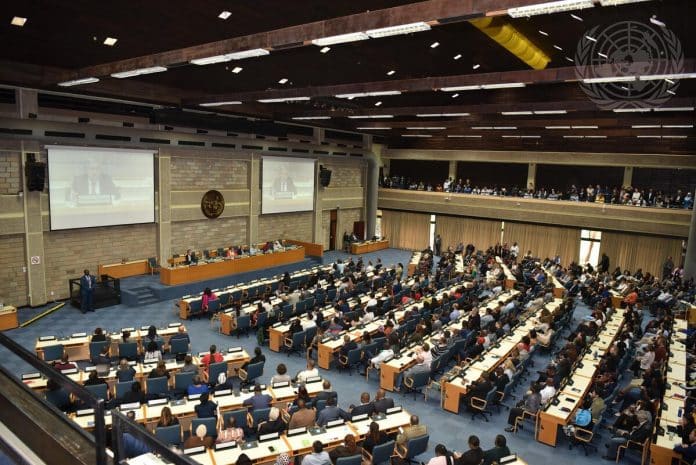THE SECRETARY-GENERAL
—
REMARKS TO THE PRESS
Nairobi, 5 September 2023
Ladies and gentlemen of the media, it’s good to be back in Nairobi once again.
I thank President Ruto, the Kenyan government and the people of Kenya for their warm welcome.
Like so many African countries, Kenya is home to enormous opportunities and limitless potential.
But achieving this potential requires confronting — and addressing — some deeply rooted challenges and injustices.
One of the prime injustices is what brings me to Nairobi today — climate chaos.
Africa accounts for just four per cent of global emissions, but it suffers some of the worst effects of climate change.
Today, I renewed my call for the world to step up climate action to avoid the worst effects of climate change, keep global promises to provide essential support, and help Africa make a just and equitable transition to renewable energy.
As I detailed in my remarks, Africa can be a renewable energy superpower.
Now is the time to bring together African countries with developed countries, financial institutions and technological companies to create a true African Renewable Energy Alliance.
And all of that requires addressing another injustice: an outdated, unfair and dysfunctional global financial system.
On average, African countries pay four times more for borrowing than the United States — and eight times more than the wealthiest European countries.
Turbocharging a just and equitable green transition — while supporting development more broadly across Africa — requires a dramatic course correction.
This means ensuring an effective debt-relief mechanism that supports payment suspensions, longer lending terms, and lower rates.
It means re-capitalizing and changing the business model of Multilateral Development Banks so they can massively leverage private finance at affordable rates to help developing countries build truly sustainable economies.
And I have called for an SDG Stimulus of at least $500 billion every year to help developing countries invest in their people and the systems they need.
But the heart of all of these injustices and more is that the multilateral system does not reflect today’s Africa or a world that is growing increasingly multipolar.
Global governance structures reflect the world as it was, not as it is.
Global institutions were created in the aftermath of World War II when many African countries were still ruled by colonial powers and not even at the table.
We see this injustice playing out in the African context today.
Global institutions need to step up, guarantee African representation, and respond to African needs and African potential.
From international financial institutions, to the Security Council of the United Nations, where Africa lacks a permanent seat.
That is why across my upcoming meetings — including the ASEAN meeting in Indonesia this week, followed by the G20 meeting in India and the G77 in Cuba — I will continue advocating for deep reforms to make these institutions more responsive to the needs of developing countries and in particular Africa.
We need and international financial system with an architecture that favours developing countries sin general and in particular African countries, and we need a reform of the Security Council in which Africa finally gets at least one permanent seat.
We cannot afford a fractured world.
We have the tools we need to guide us — the UN Charter, international law and human rights.
It’s time to end the injustices that are holding Africa back.
I will work closely with African leaders and organizations like the African Union to make progress towards the peaceful, prosperous and sustainable future that Africa needs and deserves.
Thank you.

